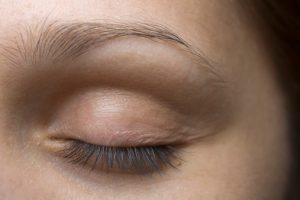 Have you ever experienced an eye twitch? You know, that sensation that your eyelid is just twitching so rapidly that you’re almost embarrassed to look someone in the face in fear that they can see it. Maybe this twitch is temporary and only occurs once. Maybe this twitch occurs several times throughout the day. It’s enough to make you ask yourself, “What’s going on?”
Have you ever experienced an eye twitch? You know, that sensation that your eyelid is just twitching so rapidly that you’re almost embarrassed to look someone in the face in fear that they can see it. Maybe this twitch is temporary and only occurs once. Maybe this twitch occurs several times throughout the day. It’s enough to make you ask yourself, “What’s going on?”
An eye twitch is known medically as myokymia, which is described as a slight spasm or movement or your upper or lower eyelid. Although you may fear that others can see your eyelids spasming, the good news is that it is rarely noticeable to others.
Advertisement
When your eye twitches, this is a result of the nerves connected to your eyelid muscles firing involuntarily. In the majority of cases, this is not a cause for concern of serious nerve problems.
So, what is causing your eye to twitch? There are many possible causes including stress, caffeine, and sleep deprivation. That is because these culprits throw off your nervous system, but the exact mechanism behind it is still unknown.
Individuals who are in school or put under a lot of pressure at work will often experience eye twitches more frequently due to the perfect combination of caffeine intake, sleep deprivation, and stress. Other reasons your eye twitches – but not as common of a cause – is alcohol, eye dryness, and pink eye. If you suspect you have pink eye, you will also experience redness, discharge, and tearing.
The most serious cause of eye twitches is a neurological disorder such as multiple sclerosis, Guillain-Barré syndrome, or even a tumor called a glioma. In these situations, eye twitches will worsen, and twitching may spread to other parts of the face too. A brain scan is required to determine if a neurological disorder is the cause of your eye twitching.
If your eye twitching isn’t a result of an infection or neurological disorder, you can work on reducing your stress, cutting back on your caffeine, and improving your sleep in order to reduce eye twitches.
Related: Eye twitching causes, treatment, and prevention
